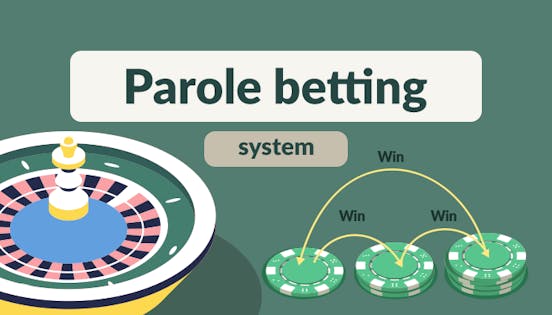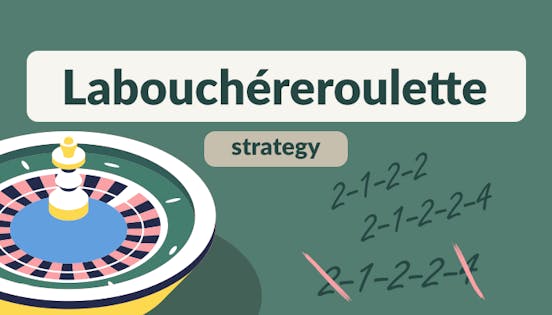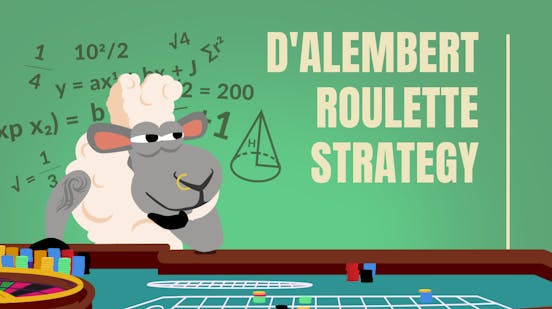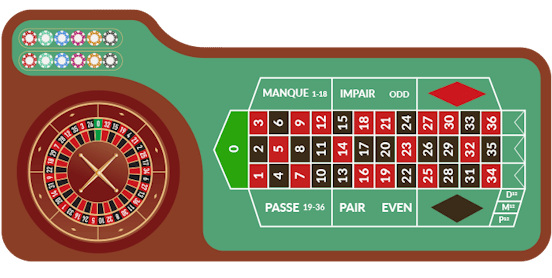How to Play Poker: A Beginner’s Guide to Basic Poker Rules


If you have always wanted to learn how to play poker, you have come to the right place. Poker is one of the oldest card games in the world and has been immortalised in pop culture through music and film.
In this guide, you will learn about the basic objective of poker, along with an overview of the different types of versions of the card game.
You will also get tips and tricks on how to advance your poker game. And as with all our poker guides, we give an overview of the different poker hands and their rankings. Let's get started...
Main Objective of Poker
Although there are many different variations of poker, the main goal remains consistent throughout - have the best hand to win the pot.
In all versions of poker, players are dealt a number of cards. The amount of cards depends on the game. The aim of the game is then to wager against your opponents to see who has the best hand of cards. Your hand of cards can be the initial ones you were dealt or a combination of dealt cards and those dealt face-up by the dealer.
Again, this depends on which version you are playing. Betting rounds occur in between the cards being dealt, giving players the opportunity to bet against their opponents.
After all betting rounds are completed, players finally reveal their hands to the dealer. The player with the strongest ranking hand wins the pot.
...have the best hand to win the pot
The Deck
All games of poker are played with a standard 52-card deck. Joker cards are utilised in some versions of poker and act as 'wild' cards. This means that they can be played as any card value.

Rules of Poker
Rules of poker vary depending on which version you are playing. There are several different types of poker, with each one having a slightly different set of rules.
Community Games or Flop Games
These types of poker games involve players being dealt two cards (Texas Hold'em) or four cards (Omaha). These are known as 'hole cards'. The dealer then proceeds to deal cards face-up on the table, in between betting rounds. These cards are known as 'community cards' and all players at the table can use these cards to combine them with their 'hole cards' to create the strongest possible hands. The main difference between Texas Hold'em and Omaha is the number of hole cards a player must use to create their hand. A player is not required to play any hole cards in Texas but is required to use a minimum of 2 hole cards in Omaha.
Stud Poker
Stud versions of poker also use 'community cards'. However, it is slightly different from flop games of poker, such as Texas Hold'em. In stud games, players are dealt 3 cards (Seven Card Stud). The cards are placed in front of each player. Depending on the game, the cards can be all face down or 2 or several of them face up. Betting rounds then commence. In intervals and between corresponding betting rounds, 4 cards are placed face-up on the table as community cards. Players wager their hands against their opponents in the betting rounds. After all the cards are laid out, players can reveal their hands to see who wins the pot. Caribbean Stud Poker has a slightly different gameplay structure, and the players play against the dealer. You can learn about Caribbean Stud in our extensive guide.
Draw Poker
Draw Poker is possibly the easiest version of poker to learn and play. Depending on the number of the draw, players are dealt several cards (usually 5 or 7). In between two rounds of betting, players are then allowed to discard up to three cards from their hand and dealt new ones from the remaining deck. This gives players the opportunity to strengthen their hands. Five-Card Draw is the most common version, which is very attractive to players due to the simplicity and speed of the game.
Video Poker is a decedent of 5-card draw poker and is a lot of fun to play at online casinos. Like Five-card draw, it is very easy to learn how to play.
Straight Poker
Straight Poker is the earliest form of poker and the most straightforward (excuse the pun). Players are dealt a hand of five cards. A round of betting commences in which players can wager and raise the pot. Once the bet is called, players reveal the hands they were dealt at the beginning. The most popular form of straight poker is 3 card brag.
Poker Betting Structures & Actions
Betting structures sometimes vary from type to type in poker. This usually goes for the number of rounds of betting. Draw poker may only have 2 or 3 rounds of betting, whereas Flop games can have up to 5 rounds of betting. However, betting rounds in all forms of poker always feature the same actions: bet, raise, call or fold.
| Bet: | A bet is the amount of money you initially want to put into the pot. It is your wagering amount. |
|---|---|
| Raise: | A raise is when you want to increase the wager from the last player. If a player has bet $20, the proceeding player can raise the bet by betting $30. This player has raised the pot by $10. |
| Call: | When a player calls a bet, they are betting the same amount as the previous player, without raising the bet. When players call the bet, the betting round ends. |
| Fold: | A player 'folds' if they wish to drop out of the hand. |
There is also an action called 'check', through which players can refrain from making an action before other players to see if they are betting or not.
What are Blinds & Antes?
To get the action started, there are forced bets in poker known as blinds and antes. Let's explain the purpose of the two of them.
Blinds
Typically found in flop games of poker, blinds are forced bets by the players in the first and second positions. The players must bet a predetermined amount to open the hand. These are the small blind and the big blind. The small blind is always positioned to the left of the dealer. The big blind is the player sitting left of the small blind and is forced to double what the small blind has bet.
Antes
Antes are slightly different than blinds, as it is a nominal bet made by everyone at the table in addition to the blinds. These small incremental bets are usually made before any card is dealt.
Types of Hands and Poker Hand Rankings
To win a game of poker, you need to have the most substantial ranking hand of cards.
We've listed the hands from the weakest to the strongest. (Of course, for lowball games, the list would go from strongest to weakest!)

As the name states, a double is simply having two of a kind of any card in the deck.

A two-pair is a neat combination that you'll come across when you have two pairs of any cards in the deck.

Three-of-a-kind is when you have 3 of the same cards from the deck (any suit)

A straight is when you have five cards of any suit, in sequential order. (eg 2,3,4,5,6)

A flush is an aesthetically pleasing hand that one attains when they have 5 cards of the same suit.

A full house is a hand to be reckoned with, which occurs when you have two of a kind, coupled with three of a kind.

Now we're really getting into the strong territory, with a four-of-a-kind being rare but a winner over most hands.

The second most powerful hand in poker games, if you're on a straight flush, you're likely on the money. Just don't give it away easily!

We're here, we've arrived at the holy grail of poker hands. The dream of all draw poker games, if you've got a royal flush, you can rest assured the hand is yours.
Fun fact: The odds of a royal flush are 649,739 : 1.
Bluffing in Poker
A very large part of poker, and perhaps the most difficult aspect to learn, is 'bluffing'. Some of the biggest pots are won not by good cards, but by good bluffs.
Bluffing involves conveying the strength, or weakness, of your cards through mannerisms or betting actions. Bluffing can portray a certain confidence in your hand in the hopes that your opposing players will fold, believing that you have a superior hand. On the other hand, you can also bluff opposing players into betting large amounts and increasing the pot by making them believe you have a weak hand.
Different Types of Poker Games
As mentioned above, there are quite a few different types of popular poker games, each with its own sets of rules and tactics that come with them.
Here are some of the most popular versions of poker you can play, along with a guide on how to play them:
Basic poker rules aren't too hard to get used to, and for the most part, if you are familiar with the rules of one version it is not hard to learn how other variants work.
For the sake of the rest of this article, we are going to focus on the most commonly played discipline of poker, which is the Texas hold 'em format.

Tips & Strategies for Winning at Poker
💡 Play Fewer Hands When You Start
Many new players who start to play poker do so more for the fun of the game than for the money, so they play far more hands than they should. While this is fun, it can be a detriment to your bankroll. Playing fewer hands will give you an advantage over players who play too many hands and play aggressively. Sitting out from time to time also allows you to watch your opponents in action, from which you might spot their tells and strategies for future hands.
As you become more experienced you will be able to play more hands and be more creative in post-flop play, but until your level of play has grown enough, the best thing to do is to only put money in the pot when you have a good starting hand.
💡 Learn to Count Your Odds
This particular tip to avoid failure at poker games focuses on the basic odds at Texas Hold'em tables.
To win at poker it is not necessary to learn advanced odds, but it is convenient and even essential to have basic knowledge of odds.
The good news is that all you need to be able to use basic odds at the poker tables, you just have to have basic knowledge of mathematics, which essentially all of us would have been taught in school (even if maths isn't your cup of tea)
💡 Don't Go Overboard With Bluffing
New players can be encouraged to bluff at every chance they get. They have a misconceived belief that poker is about bluffing and trying to cheat your opponent whenever possible.
The truth is that winning at poker depends much more on good poker knowledge and fundamentals, rather than on bluffing and blindfold aggression.
Experienced players can start to notice a bluff if you do it too many times. Good bluffing is used sporadically during a game.
The interesting thing is that much of your profit in most poker games will actually come from other players making this type of mistake, so until your game strategy improves and your experience increases enough to know how to perform a tricky bluff, save your money and just focus on how to get the most profit when you have a big hand.
💡 Try to Raise instead of Call
Beginner players can be forgiven for making the mistake of calling too much rather than betting and raising. As a rookie, players may be unsure as to whether their hand is strong enough to win or not. This encourages them to call rather than bet, as opposed to risking even more on what not be a good hand in the first place. Constantly calling on hands you are not sure are good or not will cost your bankroll more in the long run instead of raising and betting every now or then. If you believe your cards to be decent, raise the pot.
💡 Learn from the Best
Of course, it has become a cliche by this point, but it's a well know cliche for a reason.
Learning from poker players that have proven to win games, again and again, will teach you some invaluable habits, and how to play poker in a way you wouldn't have considered before.
Therefore, hooking up with great poker players and having valuable friends in the poker world is the last tip in our strategic series for bringing your game to the next level. Having friends who are heavily invested and skilled in both online and live poker is important and offers great opportunities to discuss strategies and give you pointers if you are losing a lot.
Talking about strategy with great players is very valuable since they can teach you all about exact hands and situations that have put you in trouble and have created doubts in the past.
Sometimes, in addition, having a different perspective on a hand or a concept can help you mature and improve your abilities to take your game to the next level. It will help you play poker with a much more open mind, whether it be a seven-card stud or community cards.

How To Level Up Your Poker Game
Now that you've learned the basics and are familiar with some of the happenings at the poker table, you may want to discover how to bring your initial poker game to the next level. Here are some pieces of advice to stay ahead of the curve.
Know Your Opponents
If you want to know how to play poker at an advanced level, here is an unwritten rule that can make or break a game and is the most important rule of poker: know your opponents.
And know them well.
You can tell a lot about a poker player, and their strategy, through their body language. This can help you guess the poker cards they have and the hands they may be chasing, along with the plays and tricks that they have in mind. So, the first tip, if you want to learn how to play advanced poker, is to be able to read your opponent's emotions and control your own.
Ways to Read a Poker Opponent
There are an enormous bunch of ways that you can read your opponents to your advantage during poker games.
Here are a few of the main ones that you can easily incorporate into your poker game and start getting those betting rounds under your control.
And yes, you can use these tactics in online poker too. You just simply can't hide some things behind a screen.
Bet Behaviour and Sizing
Always keep in mind how much your opponents are betting. A giveaway for a less experienced poker player is someone who drastically changes their bets depending on how strong their hand is.
Keep an eye out for patterns and follow them as much as you can. Information is power, and if you have that under wraps, you'll be on a good course.
Time is Money
Analyse how long your opponent is taking to make their move. A general rule of thumb is if a player is taking a while to make a move, whether it's during the flop or betting round, it means it's a big decision.
When you're playing online poker games, as you can't see their faces, pay close attention to the time your opponents take.
Gift of the Gab
Now, we all know if we've been playing a few poker games in our time, whether in person or on an online poker site, there's usually a bit of talk at the table.
There are always the ones who can't keep quiet and others who play the mysterious silent guy card. Keep this in mind, in case one of these players suddenly changes their behaviour completely, this could mean a shift.
The Eyes Never Lie
Our previous point is directly related to direct eye contact. People generally avoid eye contact when they're bluffing, as they don't want to give away any vital cues that they're having you on.
However, also beware of the continued, consistent and confident signs of eye contact, as these can mean that someone has got an absolute killer hand.
Nervousness
There are some people out there that just can't hold their cool while they are playing a game of poker. If someone is displaying signs of nervousness after a hand has been dealt, it's probably a good indicator that they have something big and they are trying to play it cool. You'll probably want to fold in a situation like this unless you're very confident in your hand or you are sure they are bluffing.
Tough Guy
If someone is acting like a big shot and exhibiting behaviours like splashing poker chips around or direct calls to action, then it's usually a sign of a bluff.
Of course, there are times when it could be a poker expert bluffing you, so always be careful and makes the most informative decision you can.
Places to Play Poker Online
There are many different variations of poker to master, but by now you should know the basic rules of poker in general. As always, if you're looking to put this knowledge into practice, browse our list of casinos that provide online poker and start practising your poker game. We always recommend trying out free versions of the different variants of poker to familiarise oneself with the different rules and strategies.
References:
- Wikipedia. "Standard 52-Card Deck", https://en.wikipedia.org/wiki/Standard_52-card_deck
Comments
Comment Submitted for Review
Just now
Your comment has been submitted for moderator review. It will be posted shortly once approved
Latest Guides
I am the senior content editor at CasinoCrawlers and a writer with many iGaming articles under my portfolio. I am quite skilled at writing bonus guidelines, gambling strategies, and casino reviews. During my spare time, I enjoy playing Call of Duty and I’m a massive rugby fan (go All Blacks!).
Read more about the author













